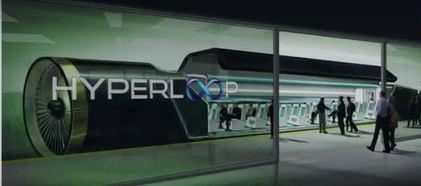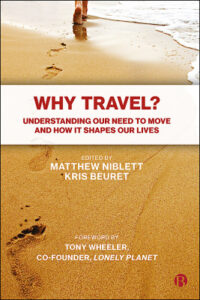Technological change and the future of travel: ITC Annual Lecture 2016

Hyperloop: one of the technologies discussed at this year’s ITC Annual Lecture that may revolutionise travel
20th June 2016
Over one hundred eminent figures from across the UK’s transport and land-use worlds gathered at the Science Museum for the Independent Transport Commission’s recent Annual Lecture.* This year’s event focused on the question of how technological advancements will change travel – a crucial issue that engendered lively discussion. The ITC was delighted to welcome the (then) UK Secretary of State for Transport, The Rt Hon Patrick McLoughlin MP, who gave the welcome address, and speakers Professor Sarah Sharples and Professor John Miles to give the double Lecture.
Introducing the discussion, the Secretary of State emphasised that the advancement of transport is the story of technological progress (the wheel, steam train, car, plane, etc). Nowadays it is not only the hardware of transport technology that is advancing; the advent of big data and communications technology is bringing about wider changes in transport including Uber, freight pods, and driverless cars. As has always been the case, these new technologies will sit alongside the old and it is how the two interact – and how we interact with these technologies – that are the key factors in using technology to improve our quality of life.
Sarah Sharples, Professor of Human Factors and Associate Dean for Research in the Faculty of Engineering at the University of Nottingham, gave a fascinating lecture on the complex and often surprising interactions between technology, human behavior, and society. She observed that there are many factors that influence our individual and collective attitudes to technology including past experiences, emotional attachments, productivity needs, cultural expectations and social pressures. All of these aspects need to be appreciated if we are going to engineer transport systems that will serve people well. Professor Sharples explained that although behavioural change is usually a slow process, under certain circumstances, such as extreme disruption, people are capable of adapting to change quickly.
John Miles, Professor in Transitional Energy Strategies at the University of Cambridge, presented some technologies currently under development which have the potential to revolutionise transport. These include driverless pods for moving people around within cities and underground bullet buses as a way of providing mass transit at peak times. He also described how hyperloop systems between cites could create a ‘national metro’ in which people could travel between cities in a network of 5 minute long 600mph journeys, waiting less than 5 minutes at each interchange point. Professor Miles emphasised the relatively low cost of such systems compared to today’s mass transit and heavy rail systems. He reminded the audience that whilst these ideas might seem unusual now, all great advancements in transport technology were hard to envisage before their adoption. With open minds towards new forms of travel we could transform our transport systems, massively reduce economic costs and boost the economy through increased connectivity.
All three speakers placed strong emphasis on the importance of human behavior when thinking about how technology will change transport, and this is one of the ITC’s aims – to bring an understanding of human travel behaviour to the forefront of our thinking about travel. With this aim in mind, The ITC has established the Why Travel? project, which is exploring human travel motivations from a variety of perspectives across the sciences, art and humanities. The project covers topics across human history and cultures, from the evolutionary origins of human travel to the future of travel on earth and beyond. To find out more about the project, including news stories and talks by experts, please visit www.whytravel.org
To watch the presentations given at this year’s Annual Lecture, please click on the videos below:
* The ITC Lecture series, which was inaugurated in 2013, explores major strategic questions that will affect the future of transport and how we travel. Other lectures have looked at the relationship between cities and their transport infrastructure (2015), human travel motivations (2014), and the potential for fusion power to transform transport (2013).


